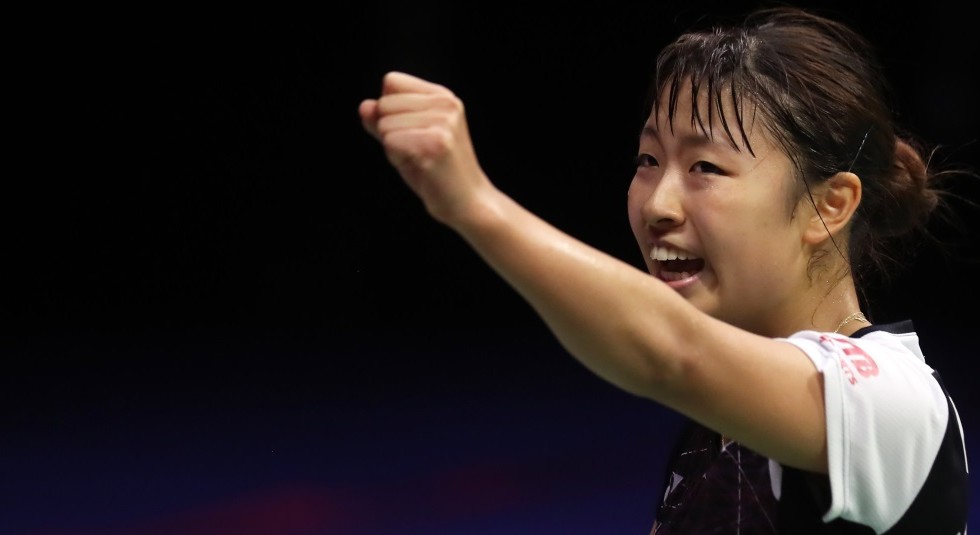
Okuhara Prevails in Epic – Singles Finals: TOTAL BWF World Championships 2017
Denmark’s Viktor Axelsen and Japan’s Nozomi Okuhara were the last ones standing as the singles contests at the TOTAL BWF World Championships 2017 concluded today in Glasgow.
The contrast between the two finals was stark – the Women’s Singles final produced one of the all-time great contests; the Men’s Singles final didn’t quite have the same drama, but both results set milestones in their own ways.
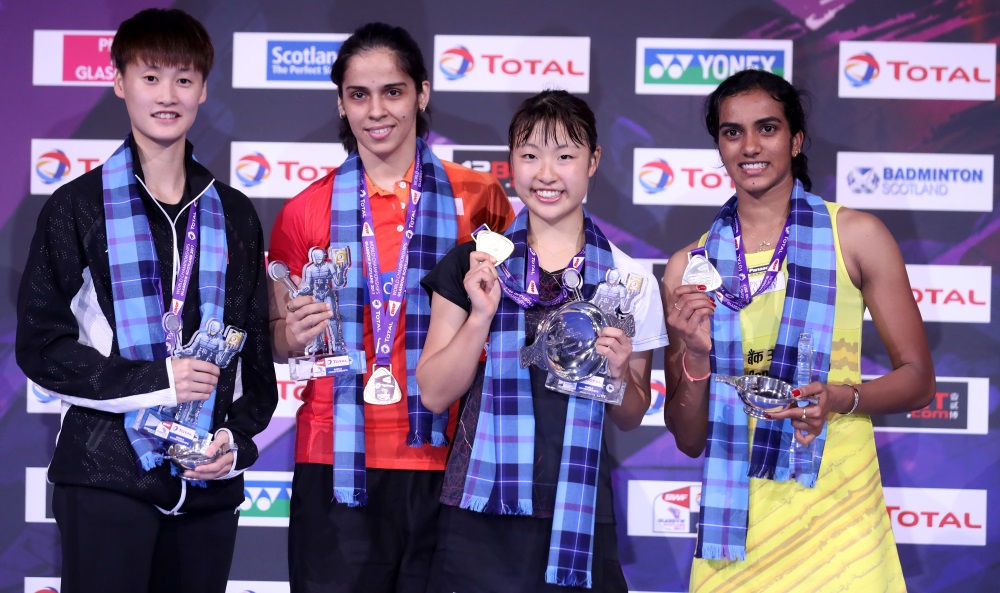
In beating five-time champion Lin Dan (China) 22-20 21-16, Axelsen became the first European since countryman Peter Rasmussen 20 years ago to become Men’s Singles champion. Incidentally, Rasmussen’s triumph had come in Glasgow.
Okuhara’s achievement was rarer, for she became Japan’s first-ever Women’s Singles World champion by beating India’s Pusarla V Sindhu 21-19 20-22 22-20.
In decades to come, the Women’s Singles final will be talked of in mythic terms as the gold standard – the prime example of all that badminton stands for. At the end of 110 minutes – the second longest Women’s Singles match ever – every sinew of the two gladiators had been stretched; every drop of sweat shed. Thankfully, there was no blood.
It was a miracle that Nozomi Okuhara and Pusarla V Sindhu could stand upright on the podium at the end of it all, for the match had been an ultramarathon in which all the abilities had been tested. By the third game, each punishing the other by sending the shuttle to the farthest corners, forcing twists, turns, lunges and dives, the two players often doubled over at the end of each rally, seemingly unable to continue. And yet they picked themselves up and continued in the same vein until the next point was won or lost.
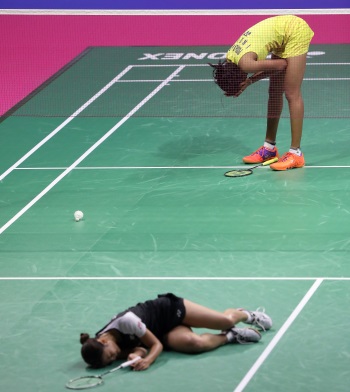 “When I saw the time, it was over an hour, and I thought ‘Oh my god, where is it going?’” Okuhara was to say later. “I was in a different world. I told myself to enjoy the moment. I saw she was tired too, so I believed I had the advantage.”
“When I saw the time, it was over an hour, and I thought ‘Oh my god, where is it going?’” Okuhara was to say later. “I was in a different world. I told myself to enjoy the moment. I saw she was tired too, so I believed I had the advantage.”
Okuhara came prepared for the bigger weapons that Pusarla possessed. The Indian knew she had to avoid the rallies that Okuhara is feared for, but in seeking to keep the points short, Pusarla sacrificed rhythm. For much of the opening game, it was Okuhara who set the tempo. Seven straight points helped her take the game.
The second was close all the way; Okuhara saved three game points to level at 20 before her opponent won the game after a 73-shot rally that won a standing ovation.
That set the stage for a magnificent third game, in which both contestants challenged the limits of the other’s physical and mental endurance. Each point was won through tremendous athleticism, craft and patience. Pusarla could glimpse daylight at 19-17.
The Indian was a whisker away from the title, but Okuhara, refusing to play safe, and still pushing the pace, finally conjured an immaculate drop shot that stayed beyond the desperate lunge of the Indian.
It had been 110 minutes of the highest quality. The match fell a minute short of the longest Women’s Singles contest ever – Okuhara versus Wang Shixian (China) at the Malaysia Open in 2015.
“I’m very happy and very tired,” said Okuhara. “I could hear the fans supporting me and that inspired me.”
The loss to Pusarla in the Rio Olympics semi-finals had prepared her for the tall Indian’s attack.
“When I look back at the Olympics, I regret that I didn’t use the forecourt well enough against Sindhu. Today I was alert for her forecourt shots, and I was covering the front and back quite well… I’m happy that this result sends a good message for Japanese sport.”
Her opponent said she’d given it her all: “It was anybody’s game. It’s upsetting to lose, but you can’t say anything at the end of such a match. It was never over from both sides. The third game went to 20-all. Every point was tough and we were both not letting go. Obviously anybody would aim for a gold because this is the final of the World Championships, but that last moment changed everything.”
It’s Axelsen’s Day

The Men’s Singles final, in contrast, wasn’t as intense, but the first game was finely balanced. Lin again set his nagging length; Axelsen fought to free himself with his attack down the flanks. At 16-18, with the game slipping, Lin came up with three great points, whipping missiles that zeroed in on the lines. The Chinese sniffed a first game win at 20-19, but uncharacteristically, his famed discipline let him down. A couple of wayward shots later, his opponent was a game up.
It was mostly downhill from there. Errors from the five-time champion mounted, and even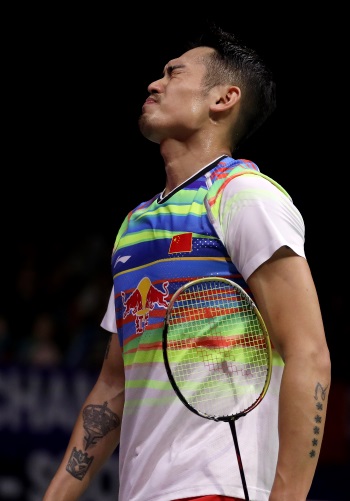 his tricky flicks failed to deceive Axelsen, who pounced on every small opening. By the middle of the second game, Lin’s defence was in shreds as the big Dane picked his spot. A smash that found the line gave him match point, and he was celebrating not long after.
his tricky flicks failed to deceive Axelsen, who pounced on every small opening. By the middle of the second game, Lin’s defence was in shreds as the big Dane picked his spot. A smash that found the line gave him match point, and he was celebrating not long after.
Axelsen was at a loss for words and trying to come to terms with the reality of achieving a childhood dream.
“I haven’t even dared to think of winning a gold at the World Championships; it hasn’t sunk in yet,” he said. “I have this feeling… that all the hard work has been worth it.”
Having beaten two past champions – Chen Long and Lin Dan – on way to the title, Axelsen paid his tribute to them: “If you want to be the World champion, you have to do it the hard way. It’s an honour for me to beat them – they inspire me. Beating Lin Dan in the final is my biggest dream come true. As a child, I used to watch him play in Denmark.”
Lin regretted that his mistakes at the end of the first game had cost him dear: “Those mistakes proved fatal for me. I told my coach that if I got the first game, the result would have been different. After I lost it, all the pressure was on me.”
And to those who were curious about his physical condition, Lin was ready with his repartee: “I will be 34 this year. I cannot see any other player who has made the World Championships final at my age. I’m in good condition and I’m happy with my campaign.”
World Championships News

BWF Permits Participation of Neutral Athletes from Russia and Belarus 29 August 2023
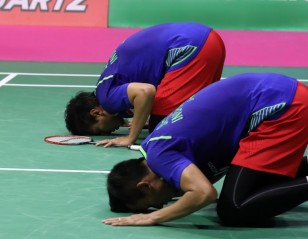
Wrap: Great Matches – TOTAL BWF World Championships 2017 29 August 2017
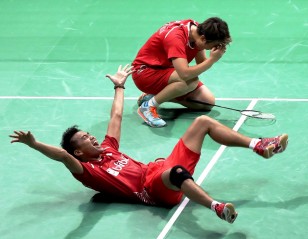
‘Four’ Sure! – Doubles Finals: TOTAL BWF World Championships 2017 27 August 2017
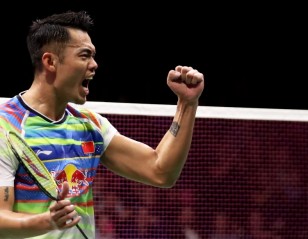
Lin in Seventh Final – Semi-Finals: TOTAL BWF World Championships 2017 27 August 2017
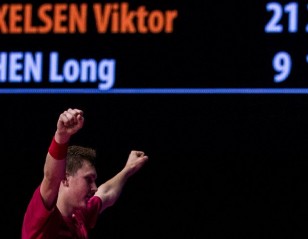
‘Axel-lent’ Job! – Semi-Finals: TOTAL BWF World Championships 2017 26 August 2017
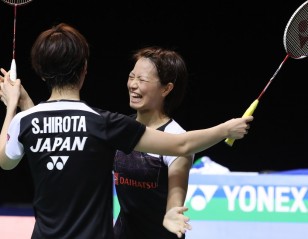
Queen Carolina Dethroned – Day 5: TOTAL BWF World Championships 2017 26 August 2017
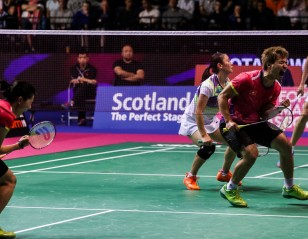
Hong Kong’s Doubles Delight – Day 5: TOTAL BWF World Championships 2017 25 August 2017
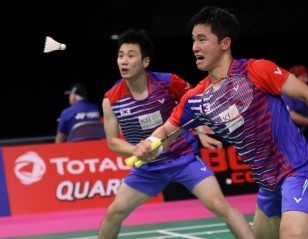
Chung/Kim Stay in Hunt – Day 4: TOTAL BWF World Championships 2017 25 August 2017
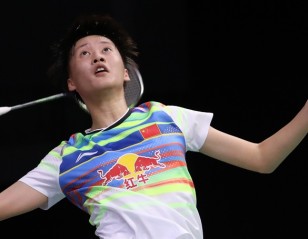
Top Seed Tumbles – Day 4: TOTAL BWF World Championships 2017 24 August 2017
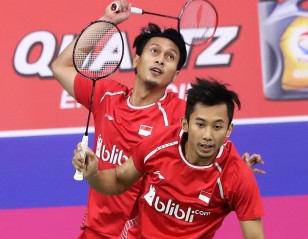
Tremors Hit Men’s Doubles – Day 3: TOTAL BWF World Championships 2017 24 August 2017
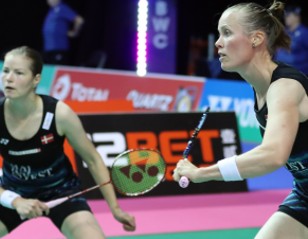
Mama Mia – Europe’s Hopes Rise! – Day 3: TOTAL BWF World... 23 August 2017
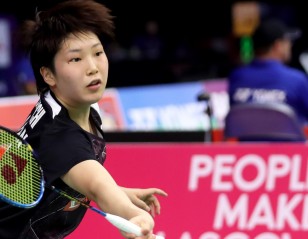
Singles Seeds Stumble – Day 2: TOTAL BWF World Championships 2017 22 August 2017
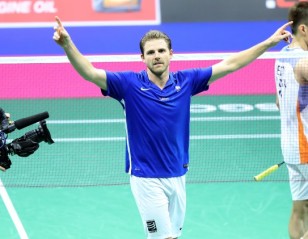
Lee Stunned in Opening Round – Day 2: TOTAL BWF World Championships... 22 August 2017
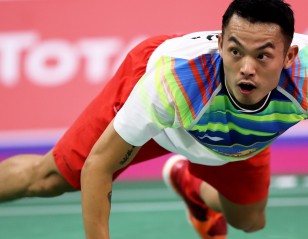
No Mercy for Merrilees – Day 1: TOTAL BWF World Championships 2017 21 August 2017
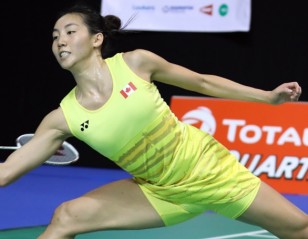
Bumpy Start for Michelle Li – DAY 1: TOTAL BWF WORLD CHAMPIONSHIPS... 21 August 2017
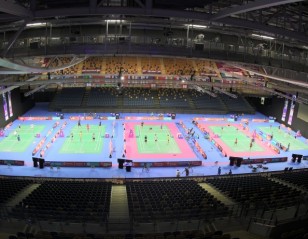
Ready for Liftoff! 21 August 2017
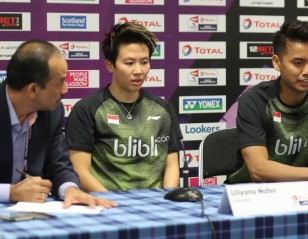
Ahmad/Natsir Brimming With Confidence 20 August 2017
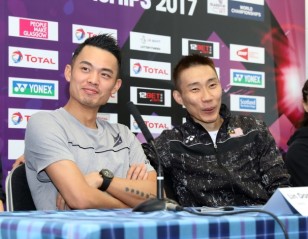
Marin Lays it On the Line 20 August 2017
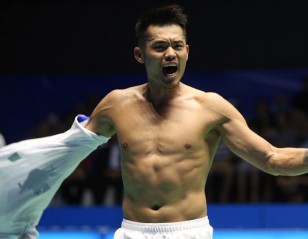
Twist in the Script? – Men’s Singles Preview 20 August 2017

Welcome to Glasgow! 19 August 2017
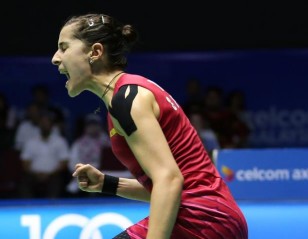
Too Close to Call – Women’s Singles Preview 18 August 2017
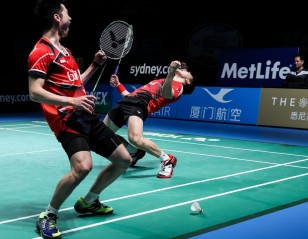
Energy Versus Guile – Men’s Doubles Preview 16 August 2017
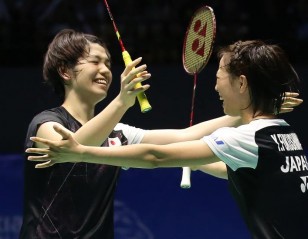
Japan Have the Edge – Women’s Doubles Preview 14 August 2017
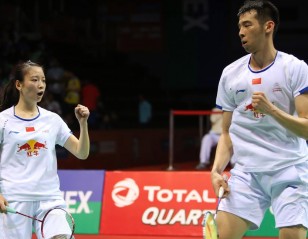
Form Favours China – Mixed Doubles Preview 12 August 2017

‘Worlds’ Blockbuster On The Cards 9 August 2017
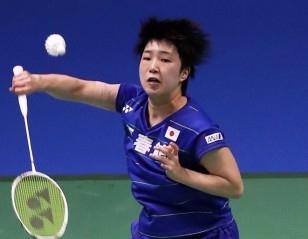
Son, Yamaguchi Top-Seeded for Worlds 6 August 2017
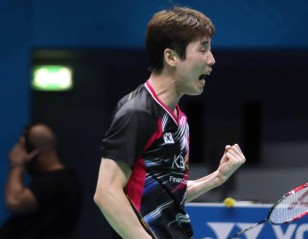
Son Has Tail Up with No.1 Ranking 2 August 2017
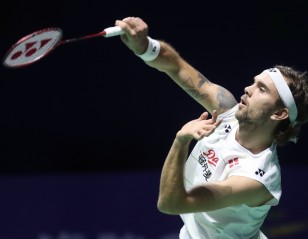
Injury Dashes Jorgensen’s Hopes 1 August 2017

12BET an Official Partner of World Championships 24 July 2017
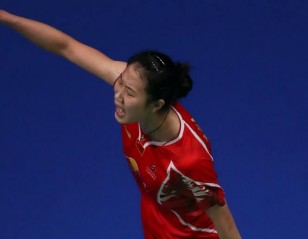
China Ace Qualification for Worlds 21 July 2017
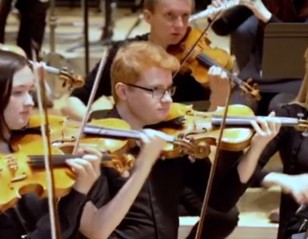
Thomas Composes a World Championships Winner 7 July 2017
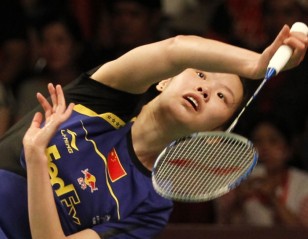
Li Xuerui’s Hopes Alive for Worlds 9 June 2017
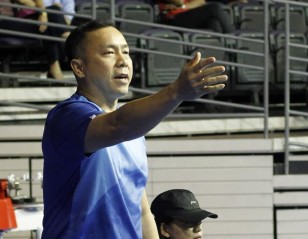
Tan Kim Her for World Coaching Conference 17 May 2017
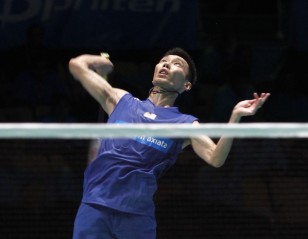
Top Guns Confirm Places 16 May 2017
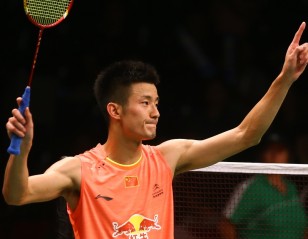
Chen Long Gets ‘Worlds’ Wild Card 4 May 2017
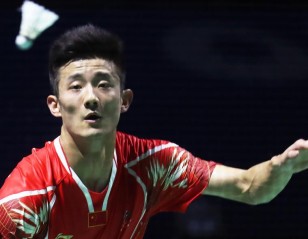
Chen Long’s Fate in the Balance 28 April 2017
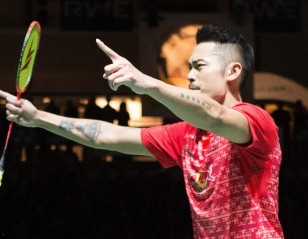
Lin Dan Stakes Glasgow Claim 20 April 2017

Jorgensen, Tai Lead Race to Glasgow 24 February 2017






























